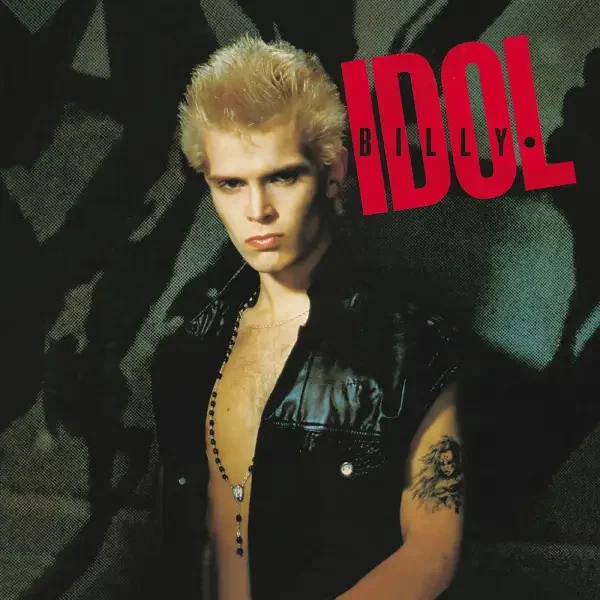Billy Idol
– Billy Idol
Billy Idol’s self-titled debut is punk stripped of its scrappy politics and wired into a neon-lit, leather-studded dream of MTV rock stardom. It’s clean but mean, catchy without apology, and loud enough to make you forget where the fire escape is. Coming off his Generation X days, Idol didn’t exactly sell out – he just figured out how to dance with the machine and flip it off mid-spin.

There’s a calculated danger here. Not the real-life alley kind, but the kind you pose for under backlit fog while the synths shimmer and the guitar wails like it’s bleeding chrome. Steve Stevens, Idol’s secret weapon, slashes and burns through the mix with flash and precision. It’s arena rock reimagined for the clubs—sleek, fast, and dressed to kill. Billy isn’t trying to convince you he’s authentic. He knows he looks too good to be true, and he leans into it.
And yet, beneath the polish, there’s a pulse that’s still punk at heart. The beats may be bigger and the hooks more radio-friendly, but Idol’s attitude hasn’t softened. He’s snarling through your speakers, grinning with that unmistakable wink that says he’s in on the act, and he’s loving every minute of it. This debut isn’t just a pivot—it’s a blueprint for what the ’80s would become when style met snarl and didn’t flinch.
Choice Tracks
Hot in the City
Urban heat distilled into synth-laced swagger. Idol croons with mock sincerity, while the rhythm section struts beneath him. Pure big-city sleaze wrapped in pop’s sharpest hooks.
White Wedding (Part 1)
This is a goth prom anthem disguised as a radio hit. The opening build is a masterclass in tension, and when that riff drops, it’s both sinister and irresistible. Stevens’ guitar steals the show, but Idol’s snarl seals it.
Dead on Arrival
A throwback to his punk roots. This one rips along with manic energy, no time for pretense. Idol sounds like he’s gritting his teeth between each line, daring the track to keep up.
Nobody’s Business
A swaggering groove with more funk than expected. Stevens colors the edges while Idol flexes just enough ego to sell it. The chorus hits like a shrug and a smirk.
Shooting Stars
This one drops the tempo but not the attitude. There’s a weariness in Idol’s voice, a glimpse of something real underneath the hairspray and shades. It’s a curveball—and a damn good one.
Billy Idol isn’t interested in depth – it’s here to thrill, seduce, and shout over the din of the Reagan era. And with that smirk, those riffs, and more attitude than most bands could fake, it works like a charm.

